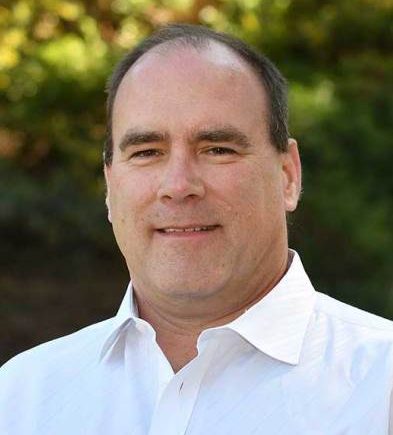The Fourth District supervisor, formerly a state assemblyman and mayor of Chino Hills, spoke with IE Business Daily recently about a number of issues.
Q: How would you describe yourself politically?
A: I’m a Republican, but I consider myself a moderate. I believe both sides are supposed to work together to solve problems. On the social issues, I come down on the libertarian side, most of the time.
Q: How have you liked serving on the Board of Supervisors? How is it different from being an assemblyman or the mayor of Chino Hills?
A: I think this might be the best job out there. It’s certainly better than being in the assembly, where you have a lot of people and you’re going to run into a lot more opposition. I was listened to when I was in the assembly, but on the board you’re one of five people, and you’re covering an area that’s bigger than a lot of states. You can get something done. And I certainly like it more than being mayor, because we get to deal with more issues. We get the city issues and the regional and state issues. And being in the assembly, in the minority party, could be frustrating because it makes it more difficult to get anything done.
Q: How so?
A: A lot of times we would get a bill passed and it wouldn’t get [put into law] the way we intended it to be, or even close. One time I got amended out of my own bill. By the time it was passed they forgot I’d written it and it didn’t include my name. Or bills would get passed that sound great in practice, but they aren’t going to work in the real world.
Q: Can you give an example of the kind of bill you’re talking about?
A: We have a law that is scheduled to go into effect in 2023 [the Mandatory Commercial Organics Recycling law, signed by Gov. Gavin Newsom] that will require businesses to recycle their organic waste. This is aimed at restaurants that [statewide] throw away tons of food every year. That food would go to homeless people, or poor people. That sounds like a good idea until you consider that San Bernardino County covers 22,000 square miles. It’s the largest county in the country. How are you going to put something like that in place over such a large area? It’s not practical.
Q: You’re serving a two-year term as board chairman? How is that working out?
A: From an administrative standpoint it’s a lot more work. It’s not just a ceremonial position, like some people probably think it is. I have to sign off on everything the board passes, no matter what it is. That by itself is a lot more work. But I like being chairman.
Q: What do you believe is the most important issue facing San Bernardino County right now?
A: There are several. Affordable housing, meaning houses people can afford to buy, and homelessness are high on the list. Air quality is up there, although that’s probably not as high as it used to be because our air is a lot cleaner than it used to be. It’s a big county with different areas and different needs. The High Desert, for example, needs to be wired for Internet access. I think that’s a major issue that needs to be addressed right away.
Q: There are people in the High Desert who don’t have Internet access?
A: Yes, quite a few. We need better Internet access up there and we need better Wi-Fi. I’m hoping we’ll be able to come up with a plan soon. But businesses won’t locate up there unless they have high-speed Internet.
Q: Are those problems best addressed by the public or the private sector?
A: I think it’s a combination of the two.
Q: Ontario International Airport has improved greatly since Ontario assumed control of it three years ago from Los Angeles World Airports. Flights have been added and much of the airport has been upgraded. Amenities and services have also been added. Are you surprised by that?
A: Not at all. I sat in with [Los Angeles Mayor] Eric Garcetti during the negotiations, and during those sessions we all realized what an asset it is. But we really knew that beforehand. Going into it we knew we had to get full control of the airport. The Inland Empire won’t grow economically without a good airport.
Q: What do you expect to see happen there during the next five years?
A: I think we’ll see more of what’s happening now. More infrastructure improvements, and the passenger count and cargo numbers will continue to go up. I think we could see a double-digit increase in passengers every year during that time.
Q: What changes are you making to the county charter? It reportedly hasn’t been amended in more than 100 years.
A: We’re looking at it. This is something that Supervisor [Janice] Rutherford discovered. It undoubtedly needs to be updated in some places.
Q: Along with housing, logistics has become the backbone of the Inland Empire economy. Riverside and San Bernardino counties have become the unofficial warehouse hub of the western United States. Are you concerned that the region is giving up to too much land to warehouse-distribution centers?
A: Yes. I think we need to be very aware of that, especially since the warehouse-distribution places are becoming so much more technical. They create jobs that pay well, but they don’t create many jobs.
Q: San Bernardino County recently surpassed one million registered voters. What do you think that says about the county?
A: I think it’s great. It’s always a good thing when more people get involved in the political process.
Q: What would most like to accomplish during your time on the board?
A: I would like to get the private sector more involved in what we do. Government is a monopoly. We have no competition. We get comfortable doing things a certain way and we do those things over and over. I think we have to guard against that.
 IE Business Daily Business news for the Inland Empire.
IE Business Daily Business news for the Inland Empire.


